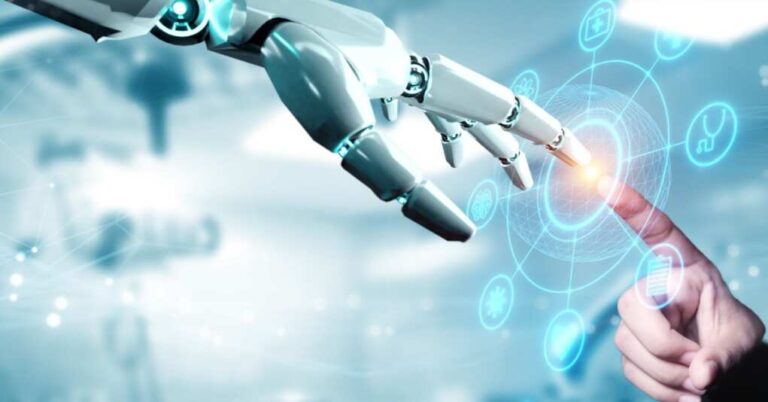
Artificial intelligence isn’t just about robots or self-driving cars anymore—it’s about control. AI has exploded into every facet of modern life, from ChatGPT writing your emails to deepfake videos that can make anyone say anything. But while the technology advances at breakneck speed, the real fight isn’t about what AI can do—it’s about who gets to decide how it’s used. And let’s just say, the people steering this ship don’t have your best interests at heart.
At the center of the debate are three key players: Big Tech, government regulators, and the so-called “ethics” experts—many of whom are conveniently funded by the same Big Tech corporations they claim to be monitoring. The ethical debates around AI aren’t just theoretical—they’re shaping policies that will affect free speech, job security, privacy, and even national security.
Big Tech: The Masters of AI (and Censorship?)
Tech giants like Google, Microsoft, and OpenAI are leading the charge in artificial intelligence, but with great power comes… well, a shocking lack of accountability. These companies have already shown their willingness to manipulate AI algorithms to serve their own interests—whether it’s silencing political opinions they don’t like or pushing narratives that conveniently align with their bottom line.
Remember when Google’s Gemini AI refused to generate images of white people in historical contexts? Or when OpenAI admitted to tweaking ChatGPT to avoid “problematic” answers? This is what happens when the same handful of Silicon Valley elites get to decide what’s “ethical” and what’s not. They claim to champion fairness and neutrality, yet their AI systems have repeatedly shown bias, often leaning heavily in favor of progressive viewpoints.
The real kicker? These companies are also the ones lobbying hardest to “regulate” AI—on their own terms, of course. They’re not looking for fair competition; they’re looking to enshrine themselves as the gatekeepers of artificial intelligence, keeping smaller competitors out while ensuring they maintain control over what AI can and cannot say.
Government Regulators: Overreach in the Name of “Safety”
On the other side, we have the bureaucrats. The Biden administration has already taken steps toward AI regulation, with executive orders mandating oversight, risk assessments, and, of course, diversity guidelines for AI models. Because nothing says “cutting-edge innovation” like forcing machines to pass DEI compliance tests before they can function.
The European Union, always eager to regulate something, has gone even further with its AI Act, which aims to impose strict limitations on “high-risk” AI applications. But who decides what’s “high-risk”? Well, the same bureaucrats who have spent the last decade censoring speech they don’t like and cozying up to Big Tech lobbyists.
The government’s obsession with regulating AI under the guise of “protecting democracy” should raise alarms. We’ve already seen AI-generated content used to silence dissenting views and manipulate social media discussions. Now, with new laws on the horizon, regulators want the power to determine what’s acceptable AI behavior—meaning they can dictate what AI-generated information is “true” and what gets erased from existence.
Ethics Experts: Who Are They Really Working For?
Then we have the so-called “ethics” watchdogs—the academic institutions and think tanks issuing grand declarations about AI’s dangers while conveniently raking in millions from Big Tech. Groups like the AI Ethics Lab and the Partnership on AI claim to be neutral observers, but their funding sources tell a different story.
These organizations push for AI systems that reflect “equity” and “inclusivity,” which, in practice, means AI models are designed to avoid inconvenient truths that don’t align with leftist ideology. For instance, several AI research institutions are advocating for strict speech limitations to prevent “harmful” AI-generated content—meaning anything that challenges progressive dogma could be deemed too dangerous for AI to discuss.
The scariest part? Some of these groups are already advising world governments on AI policy. That means the decisions about how AI will shape our world aren’t being made by engineers or the public—but by politically motivated activists disguised as ethics scholars.
What’s the Endgame?
So, what does all this mean for you? Well, if the AI overlords get their way, we’re heading toward a future where artificial intelligence isn’t a tool for empowerment—it’s a tool for control.
- Your access to AI-generated content could be filtered based on what Big Tech considers “acceptable.”
- AI-driven hiring systems could reject candidates based on woke diversity quotas rather than merit.
- Governments could use AI surveillance to track and monitor speech, both online and in real life.
- Entire industries could be decimated as AI automation replaces jobs, with little regard for middle-class workers.
The ethical debate over AI is about far more than just technology—it’s about who controls the future. And if the past is any indication, the people pushing hardest for AI regulation aren’t interested in protecting you—they’re interested in consolidating power.
So the real question isn’t how AI will evolve—it’s who gets to decide what it can and cannot do. And unless Americans start demanding transparency and accountability now, the future of artificial intelligence may belong to the elites—not the people.
